In 2016, the Board of Directors of all organizations that make up the Group of Companies Institute for Sustainable Innovation (ISI) joined the Earth Charter Initiative. This decision demonstrated their commitment to its principles, primarily in the field of social and environmental responsibility. Since then, the staff of ISI has actively contributed to the promotion of Earth Charter ideas in Russia and other countries.

In its consulting work and business projects, the ISI complies with the ethical norms of the Earth Charter to implement the provisions of the UN Global Compact and the Global Reporting Initiatives (GRI). Such projects include:
- Development of corporate non-financial reports
- Sustainable development reports and climate strategies
- Environmental impact assessments
- Development of compensational nature restoration projects using the ecosystem approach
- Assessment and management of climatic and environmental risks, including health risks
The ISI also promotes the values and principles of the Earth Charter when it works with regional authorities. The regional strategies, created for environmental development and programs for adaptation and other strategical documents, are based on the close cooperation between social well-being, climate change and environmental safety organizations. The program conceived by the ISI, “Green Danilov: A City for Women and Children,” prompted the creation of a favorable and safe environment for these vulnerable social groups of the population by improving the ecological situation and landscaping.
The Group of Companies Institute for Sustainable Innovation includes a Council of Young Scientists. This organization assists promising youthful employees to study inclusive sustainable development and apply the principles of the Earth Charter to research and design projects.

In addition, the ISI conducts webinars and training events on climate agenda and other relevant topics for engineers and managers of companies working in health risk assessment and sustainable development. Experts share their knowledge of business assessments that reflect the principles and ethical foundations of sustainable development. They then assist in integrating that knowledge into the management of companies.
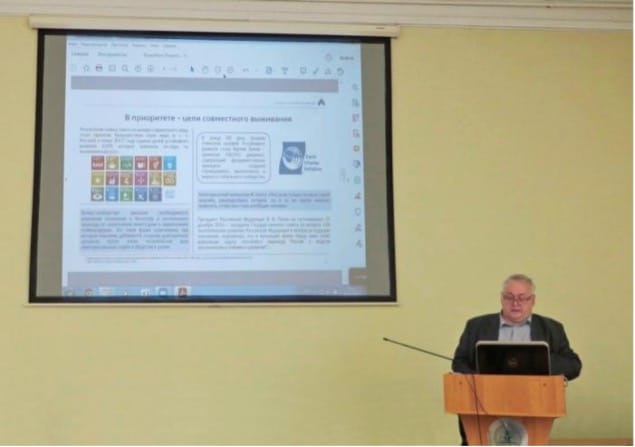
The combined efforts of the staff of the ISI have expanded the scope and application of social and environmental responsibility and the ethical foundations of the Earth Charter. These values are applied to consulting work with enterprises and corporations, interaction with regional authorities and educational activities for young professionals.
Earth Charter case studies in the work of the Institute for Sustainable Innovation
- Development of a draft action plan for Russia’s transition to a green economy using the principles of the Earth Charter.
In 2017, specialists of the Institute for Sustainable Innovation developed a draft action plan for Russia’s transition to a green economy. The action plan was prepared to promote sustainable development of the country and effectively implement the ethical approaches of the Earth Charter. Specific features of Russia’s development were considered, including assessing the effectiveness of the proposed measures and establishment and clarification of the main tasks. The authors also focused on issues of reducing environmental risks, the sustainable use of natural resources, the improvement of the quality of economic growth, and the improvement of welfare and social justice.
During work on the action plan, an expert meeting on Russia’s transition to a green economy was held. It was attended by specialists from various fields including sustainable development management and economics, environmental management, and environmental risk assessment. Discussions and expert opinions made it possible to clarify the provisions of the action plan and increase its potential effectiveness.
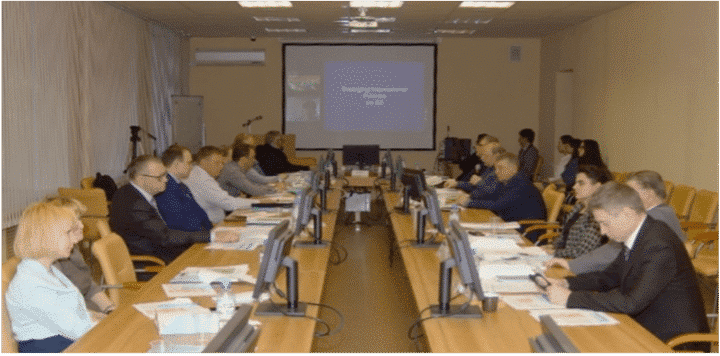
It is the hope of the specialists that the draft action plan for the Russian Environment Ministry will be implemented, and the Russian economy will gradually become greener.
2. Using the ideas of the Earth Charter when working with large industrial enterprises
2.1 in preparation of reporting (GRI, CDP, UN Global Compact)
The Earth Charter is the moral and ethical basis for specialist-expert reports. Its focus is on the contribution of customers to the socio-economic development and maintenance of ecological integrity in their respective regions. These aspects are considered both for the present situation and the long term. This is especially important, since non-financial reporting is a corporate governance tool that improves its quality and systematizes the non-financial achievements of an enterprise (environmental, social, and other programs and initiatives). As such, it shows the company’s commitment to sustainable development principles and provides information relevant to stakeholders.
For over eight years, the ISI has developed non-financial reports for enterprises and industrial companies in accordance with international standards and requirements, including the Global Reporting Initiative (GRI), the UN Global Compact and CDP (formerly Carbon Disclosure Project).
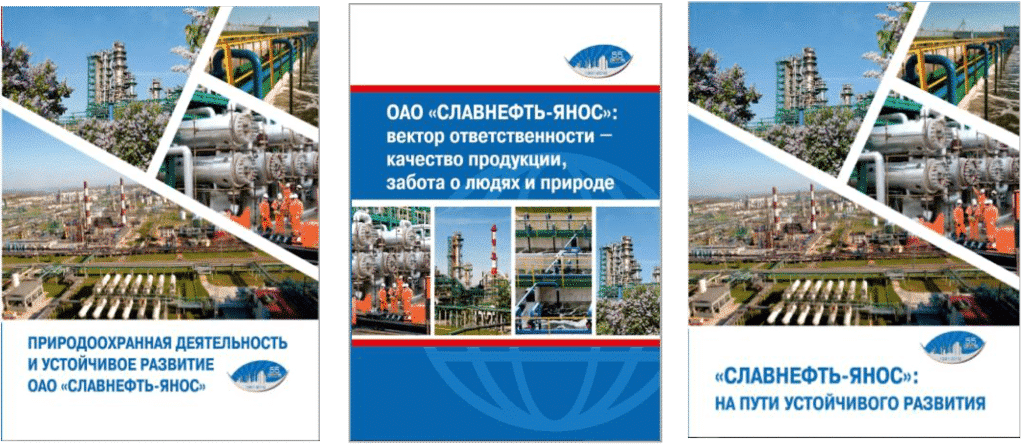
Since this large enterprise has a multifaceted impact on the local, regional, and global community, the reporting was made for different groups of stakeholders, including experts, politicians and managers, and the general public. This approach delivers targeted information on the environmental, social, and economic aspects of the enterprise to all stakeholders.
2.2 When developing corporate climate strategies
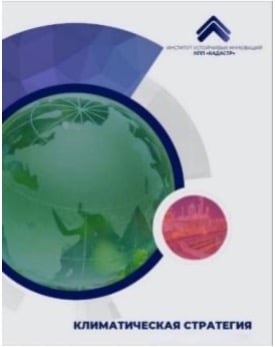
Without the implementation of the ideas of the Earth Charter, corporate climate strategies are less effective since they do not consider human factors. This is of particular importance since large companies balance climatic factors and their climate strategy. These factors include increasing risks of unpredictable natural emergencies and possible changes in the economic and political conditions where the enterprise operates.
The principles of the Earth Charter – sustainability and the comprehensive analysis of social and environmental factors – are implemented at all stages of strategic development: from defining the organizational structure within a company to determining development priorities. These comprehensive documents are geared towards the achievement of sustainable global development goals.
Climate strategies developed by the specialists of Institute for Sustainable Innovation summarize information about climate risks, new opportunities for companies, their existing activities, and climate goals. They also present an action plan to reduce greenhouse gas emissions. The reports consider the requirements of many international climate change organizations: The Intergovernmental Panel on Climate Change (IPCC), the United Nations Framework Convention on Climate Change (UNFCCC), CDP (formerly Carbon Disclosure Project), the Task Force on Climate Related Financial Disclosures (TCFD), and others.
Thanks to detailed and well-informed climate strategies, companies are able to implement action plans to strengthen their market position, preserve jobs, engage with local communities and reduce their negative impact on the environment and the climate. This work also increases the overall resilience of the companies.
2.3 During evaluation of ecosystem services and the effectiveness of climate compensation projects
The Institute for Sustainable Innovation’s 25 years of experience allow it to professionally evaluate all ecosystem services. However, this would not be possible without a reliance on principles of the Earth Charter such as ecological integrity and respect for the living community of the planet. Our experts approach the identification and study of all ecosystem service flows with great attention and care to prevent harm to the environment and to help large companies and nature coexist.
When specialists from the ISI assess ecosystem services, they pay special attention to the evaluation of cultural services, since the well-being of the local population depends on them. Qualitative and quantitative assessments of all ecosystem services provide an opportunity to consider the real compensation effectiveness of climate initiatives and enhance the effectiveness of corporate climate strategy.

The work typically consists of three main tasks: determining the estimated indicators of ecosystem services, assessing the ecosystem effectiveness, and improving the company’s climate strategy. For example, it was recognized with a recent client that their forest compensation climate projects are important due to their contribution to the sustainable development of the area. In addition, their projects contribute to fulfillment of national and international initiatives and commitments. Implementation of provisions of the Earth Charter helps the ISI make evaluation of ecosystem services more integral and relevant. Further, a proper assessment of ecosystem services considers the interests of local communities and reflects the real value of specific services for the population. As a result, companies, managers and investors are able to make informed decisions and contribute to the development of businesses and regions.
3. Solving problems of sustainable development of towns and rural settlements in accordance with the principles of the Earth Charter
3.1 Strengthening local communities in the small towns of the Yaroslavl Region, Russia
Many small towns and rural settlements are inhospitable for ordinary residents and don’t provide suitable living conditions. The infrastructure necessary for young people, women and children is inadequate, which leads to a decrease in the population as young people leave for more accessible and hospitable places. Urban development projects carried out by the ISI have helped to improve this situation, with life in many small towns and settlements changed for the better. These projects involved collaboration of all social groups, including the most vulnerable (women, children, and adolescents) and the authorities during their design and development. This fully correlates with the ethics and principles of the Earth Charter: “… we are one human family and one world community with a common destiny.”
The projects brought together specialists from different European countries and included contributors with considerable experience. Their approach was based on inclusive and stakeholder capitalism, which focus on the interests of all affected parties.
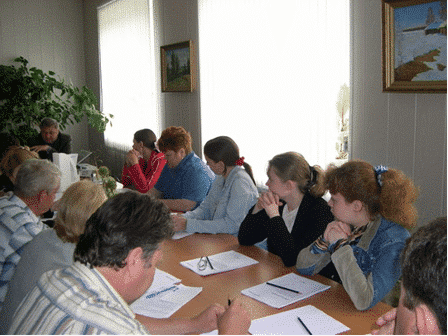
For the first time, heads of local government bodies and high school students met to discuss the developmental problems in the Pervomaisky District of the Yaroslavl Region. In addition, administrative officials, the chairmen of local non-profit associations, the council of entrepreneurs, the heads of the culture department, regional, and even schoolchildren were also invited. Thanks to their contributions, the views and needs of all the residents of the area were considered. The joint development of an Action Plan for Environmental Protection and Sustainable Development helped to unite and strengthen the local community.
An organized competition called “My Beloved Region” offered children a fresh look at their homeland. They photographed the most attractive and unattractive places near where they live. This allowed representatives of the administration to learn the opinions of young residents on what they see and what they would like to see changed since the future sustainable development of the region depends on them.

3.2 Cultural and spiritual values are the true basis of sustainable development
Natural-cultural areas are often of sacred importance for many residents of their cities and regions. They enhance the attachment of people to where they live. This is why these areas need to be restored, improved and promoted. This is the most important and practical element that surrounds the implementation of the ideas of the Earth Charter in the Yaroslavl Region.
The restoration of the cedar grove at the Tolgsky Monastery is one such project carried out to preserve places of special spiritual significance in the Yaroslavl Region. The monastery is a unique cultural center for the entire region.

The specialists of the ISI focused their work on the first two principles of the Earth Charter, respect and care for the community of life and ecological integrity. This led to the development of a broad range of measures, based on biological and dendrological (the study of trees) sciences, to preserve rare and picturesque natural monuments. Such results were achieved only because of well-coordinated work that was carried out between the diocese, the administration, the mayor’s office, and the public. At the project’s onset, the grove was zoned according to locations of spiritually significant objects. ISI specialists carefully studied the health of the trees, the environmental conditions and other factors affecting their growth and development. Then they created a detailed action plan to restore and care for the grove as a first step of the work. It is very likely that this project will also serve as the basis for the development of a group of specially protected natural areas with significant spiritual status in the Yaroslavl Region.
3.3 Integration of the principles of the Earth Charter into educational processes
To solve today’s global problems, students will have to apply the knowledge they gain into practice and guide the world community towards sustainable development. In recognition of the young generation’s common responsibility to develop programs for the well-being of people and the plant, ISI specialists integrate Earth Charter principles into the educational processes.
This work is being carried out by the Yaroslavl State Technical University and applies to undergraduate and graduate programs.
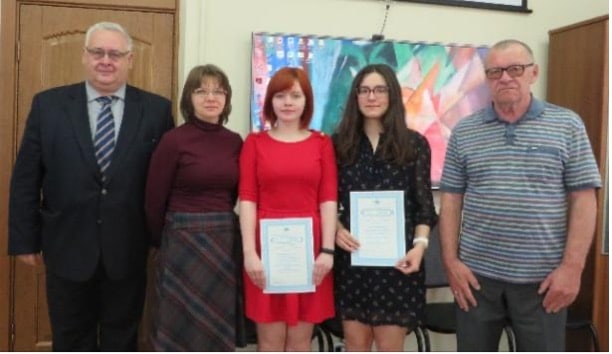
Students learn the basics of sustainable development and relevant concepts and terms, based on an integrated ecological, socio-economically oriented approach to environmental management. The ISI has made the concept of sustainable development an integral part of educational programs. As a result, graduates use the principles of the Earth Charter in their work in regional and local administration bodies, in designing companies and in scientific institutions. Since 2014, the Knyazkov Competition has been regularly held among students, who are invited to present research papers based on the principles of sustainable development and the implementation of the ideas of the Earth Charter.
Integration of sustainable development issues and the principles of the Earth Charter into educational processes are now a necessary part of educational programs in all universities in the country.
4. Preparation of publications aimed at promoting the ideas of the Earth Charter
Ecological Atlas of the Yaroslavl Region
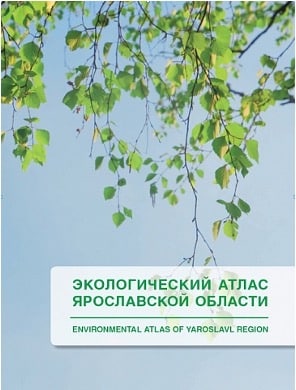
As the Preamble of the Earth Charter states, the world is becoming increasingly interdependent and fragile. Realizing this and accepting responsibility to implement the principles of the Earth Charter, the specialists of the ISI make a significant contribution to the development of its regions. This task would be impossible without the collection, analysis, and systematization of relevant information. This information, based on an interdisciplinary synthesis, leading world methodological approaches and selected indicators, is the foundation on which the Ecological Atlas of the Yaroslavl Region was developed.
The Atlas consists of three chapters. The first chapter discloses information about the state of the region, the environment and natural resources. The second chapter contains an analysis of environmental impacts. Finally, the third describes measures taken to mitigate environmentally negative processes. Special attention is paid to the main challenges of our time, namely climatic and demographic changes
The Atlas contains maps, figures, pictures and texts, as well as aerial photography. While creating the Atlas, the specialists of Institute for Sustainable Innovation sought to contribute to environmental protection through a strategy of harm prevention. This phrase means the more systematized information we have, the better we can preserve the ecological integrity of both separate regions and the entire Earth. The distribution of the Atlas also facilitates an open exchange of environmental information and its practical application.
Fomenko G. A. Sustainable Ecosystem Design: Main Aspects and Specific Features
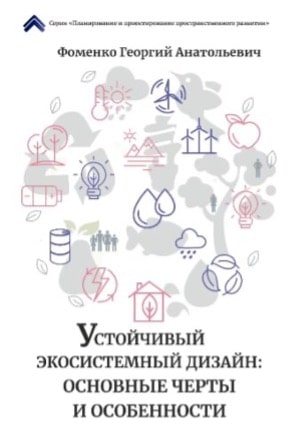
Inspired by the ethics of the Earth Charter, the Institute for Sustainable Innovation has begun to develop and distribute a series of student books dedicated to the implementation of sustainable development in regional planning and design. This book is the second of the series. It reveals the synthesis between engineering and the principles of sustainable development and provides a detailed description of the Sustainable Ecosystem Design concept while examining its main aspects and the specific features.
The book is aimed at giving readers the knowledge and skills to put the principles of the Earth Charter into practice. It will also help its readers to identify and analyze problems related to the sustainable development of specific areas and to create practical solutions.

